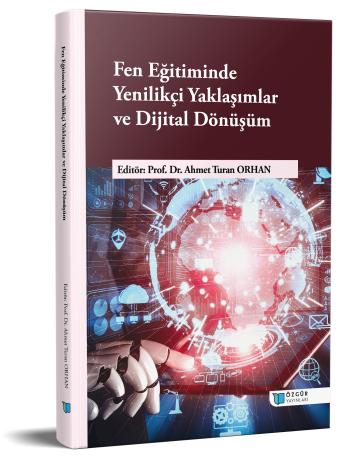
The Current Role of Science Education and the Inevitability of Digital Transformation
Chapter from the book:
Orhan,
A.
T.
(ed.)
2025.
Innovative Approaches and Digital Transformation in Science Education.
Synopsis
Science education is a process that aims to cultivate individuals capable of addressing contemporary global challenges such as climate change, health, energy, and artificial intelligence literacy, while fostering scientific reasoning, data literacy, and evidence-based decision-making skills. Recent studies demonstrate that augmented reality (AR), virtual and mixed reality, as well as game-based digital environments, provide significant contributions to students’ cognitive and affective learning outcomes. In this context, digital transformation refers to a comprehensive restructuring of teaching processes, assessment practices, and learning ecosystems, which are not limited to the integration of new technologies into classrooms. In line with the Türkiye Yüzyılı Maarif Model (TYMM), the integration of various digital tools such as Kahoot!, PhET, MEL Science VR/AR, Scratch, Tinkercad, and Padlet is promoted in science education. These tools enhance students’ skills in problem-solving, analytical thinking, creativity, collaboration, and digital literacy, while enabling teachers to provide real-time feedback, design individualized learning experiences, and make data-driven decisions. In terms of assessment, new approaches that are game-based, simulation-supported, mobile-based, e-portfolio and artificial intelligence-oriented have become popular, allowing for the multidimensional evaluation of not only learning products but also process performances. Another critical dimension of digital transformation is ensuring accessibility and inclusivity for students with special needs. Sign language integration, screen readers, audio descriptions, AR/VR applications, and adaptive software make learning processes more tangible, personalized, and motivating. Such applications, which were developed within the framework of Universal Design for Learning (UDL), contribute to the provision of equal learning opportunities for all learners. In conclusion, digitalization in science education represents a paradigm shift situated at the core of contemporary pedagogy, supporting both academic and socio-emotional development through individualized learning pathways, inclusive design, and multidimensional assessment practices.

